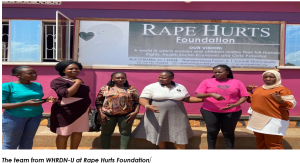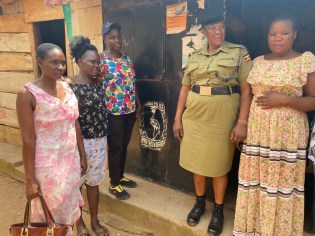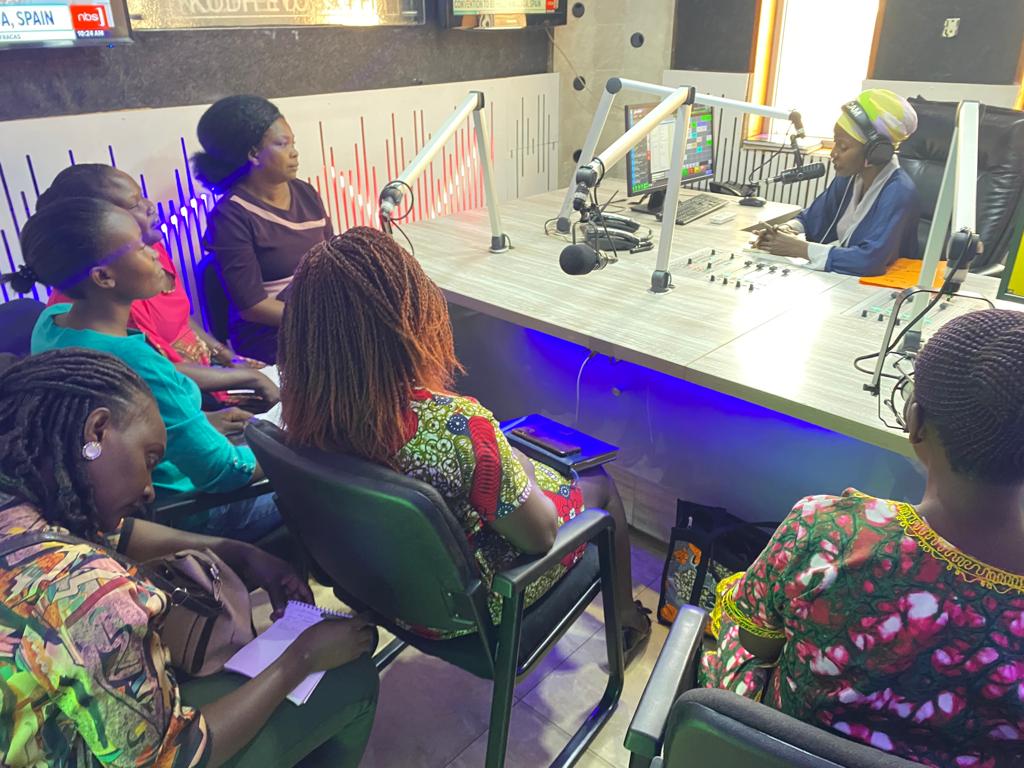Women Human Rights Defenders in Busoga: Courageously Championing Change in difficult working conditions
Introduction
In July 2023, the Women Human Rights Defenders Network Uganda embarked on a fact-finding mission and solidarity visits to grassroots women human rights defenders in the Busoga region. The mission aimed to identify challenges faced by WHRDs, verify allegations of attacks, and recommend measures to create a safer working environment. During this remarkable journey, the defenders demonstrated their unwavering commitment to various human rights causes, including environmental rights, gender-based violence, child labor, land rights, LGBTQ+ rights, and sex workers’ rights.
Empowering Voices on NBS Radio
The WHRDs from the Busoga region seized the opportunity to broadcast their message on NBS Radio in Jinja. They eloquently spoke about their essential roles in protecting and empowering the community. From supporting victims of domestic violence and fighting against early marriages to defending the environment and advocating for children’s rights in rice and sugarcane plantations, their dedication to making a positive impact was evident.


Women Human Rights Defenders from Busoga region during the radio talk show
Supporting Persons with Albinism:
One of the heartening encounters was with Fazirah Kawoma, Head of Programs at the Source of Nile Union of Persons with Albinism (SNUPA). Fazirah shed light on the discrimination faced by people with albinism, emphasizing the importance of promoting healthcare and education. SNUPA’s efforts in supporting cancer prevention through surgeries and educational opportunities were laudable, proving that solidarity can be a powerful tool against discrimination.

Engaging with Local Organizations
The fact-finding mission included interactions with local organizations and strengthening networks and resources. At the First African Bicycle Information Organization (FABIO), the WHRDNU team appointed Rita Nakalema as their focal person, ensuring a seamless support flow to defenders in need. Brenda Kugonza encouraged the referral of attacked WHRDs, exemplifying the spirit of collective empowerment.

Addressing Gender-Based Violence at Rape Hurts Foundation
The team visited the Rape Hurts Foundation, a pivotal organization supporting women and children in the Busoga region. The foundation’s efforts in providing emergency support for victims of violence and raising awareness about GBV, trafficking, and the rights of survivors were commendable. However, they also highlighted the challenges they face when handling GBV cases, with some police stations demanding bribes before taking action. Such obstacles underline the need for continued advocacy and reform.

Concern for Children and Women Empowerment (COFCAWE)
Namugolo Sarah, a WHRD from COFCAWE, showcased the organization’s dedication to empowering young children and teenage mothers through skill training and start-up kits. However, the prevalence of child abuse and defilement in the villages remains a pressing issue. WHRDs like Sarah face challenges in following up on cases due to reluctance from community leaders and parents to disclose criminals. Such hurdles call for collaborative efforts to strengthen legal mechanisms and support systems.

The Invaluable Efforts of Integrated Disabled Women Activists (IDWA)
The team’s interaction with Elizabeth Kayanga, Executive Director of IDWA, revealed the organization’s commendable endeavors in promoting gender equality and advocating for the rights of women and girls living with disabilities. Their achievements, such as providing adjustable labor beds and wheelchairs in hospitals, demonstrated the transformative power of grassroots activism. However, they also highlighted harassment and body shaming faced by paralegals with disabilities during their community outreach.

Empowering Female Sex Workers
The courageous female sex workers who are also human rights defenders shared the critical work they do in advocating for their rights and ensuring their safety in the face of insecurity. They recounted recent incidents of arrests and false accusations, which they tenaciously resolved through advocacy and intervention. Their resilience exemplifies the importance of ensuring human rights for all, regardless of their profession.

WHRDs build working relationships with police officers in the community for their protection.
Conclusion:
The fact-finding mission and solidarity visits to the Busoga region showcased the immense contributions of women human rights defenders in championing change and safeguarding the rights of marginalized communities. Despite facing physical insecurity and numerous challenges, these defenders inspire hope and progress. By amplifying their voices, strengthening networks, and addressing systemic barriers, we can create a safer and more inclusive environment for these valiant defenders to continue their invaluable human rights work.
